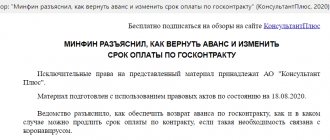An exchange agreement is an agreement under which the parties exchange property that belongs to them by right of ownership.
- Form and sample
- Free download
- Online viewing
- Expert tested
FILES
The subjects of an exchange agreement can be legal entities and individuals, as well as the state and municipalities. In other words, the parties to this agreement may be any legally capable persons.
An exchange agreement can be concluded either orally or in writing. An important nuance is that an oral conclusion is possible only if the subject of the contract in its value does not exceed the minimum wage by ten times. Contracts, the cost of the subject of which exceeds ten times the minimum wage, are drawn up in writing.
Below, using the example of a car exchange agreement, we will look at how such a document is drawn up and what nuances you should pay attention to when drawing it up.
Barter agreement
Kurgan
May 24, 2023
We are: Denisov Denis Denisovich, born on March 11, 1999, living at the address Kurgan region, Kurgan city, Peter the Great street, building 88, apartment 324, passport XXXXX XXXXXXX, issued by the Federal Migration Service of Russia for the Kurgan region in the city of Kurgan on March 11, 2019, hereinafter referred to as Seller 1, on the one hand, Ilyin Ilya Ilyich, born on March 12, 1999, living at the address Kurgan region, Kurgan city, Cheryomushki street, building 874, apartment 398, passport XXXX XXXXXXX, issued by the Federal Migration Service of Russia for the Kurgan region in the city of Kurgan on 03/12/2019 , hereinafter referred to as Seller 2, on the other hand, have entered into this agreement as follows:
The preamble to the agreement traditionally states:
- type of transaction;
- place and date of conclusion of the agreement;
- names and roles of parties to the contract;
- residential address and passport details of individuals.
An exchange agreement, like other transactions, has essential conditions, without which it cannot enter into legal force. In our case, such conditions include:
- subject of the contract;
- the actual value of the property that is the subject.
Under special control
The use of non-monetary forms of payment has a number of advantages over conventional ones carried out through bank accounts:
- banking costs are reduced;
- time savings are achieved;
- there is no need to exclude funds from circulation.
But when using non-cash forms of payment, it is necessary to take into account that such transactions have always attracted the attention of the tax authorities, since when they are carried out, funds do not pass through accounts in credit institutions or the cash desk of the enterprise. This circumstance significantly complicates control by fiscal authorities.
In addition, in the case of using the classic version of commodity exchange, that is, when one property is exchanged for another of equal value, there is no goal of making a profit. Then the meaning of commercial activity, which is precisely generating income, is lost. This circumstance also inevitably attracts the attention of regulatory authorities. Therefore, when making such calculations, it is necessary to have an idea of their legal basis.
It is worth paying special attention to the fact that tax authorities have the right to control barter transactions on the basis of clause 2 of Art. 40 Tax Code of the Russian Federation. And if the deviation of the transaction price from the market price is more than 20%, then the inspectors can recalculate the results of the transaction at market prices and charge additional taxes (Clause 3 of Article 40 of the Tax Code of the Russian Federation).
If the exchange agreement does not agree on the name and quantity of the goods to be transferred to one of the parties, then the agreement is not concluded.
Item
Information about the subject of the contract is the basis of any agreement. In the case of an exchange agreement, the object itself is the property itself, which is exchanged by the Counterparties. At the same time, it is important to indicate comprehensive characteristics of this property so that no disagreements arise later. In an exchange agreement where the subject is the parties' cars, the following characteristics are indicated: - make of the car; — year of manufacture of the vehicle; — VIN number; - engine capacity; — color of the vehicle; - registration number; — vehicle passport; - registration certificate. So, information about the subject of the agreement in the text of the document is written as follows: The parties, in accordance with this agreement, transfer to each other the following vehicles that belong to them by right of ownership:
Denisov Denis Denisovich transfers in favor of Ilyin Ilya Ilyich a passenger car of the daewoo nexia brand, manufactured in 2011, VIN number - ХХХХХ-ХХХХХХ, engine number - 00000000, engine capacity - 1.4 l., body number - 0000000, color - white, registration number - Х ХХХ ХХ ХХ, vehicle passport – ХХХХХХ, issued (by whom) ХХ ХХ ХХХХ (date of issue). Ilyin Ilyin, in turn, transfers in favor of Denisov Denis Denisovich a passenger car of the Datsun on-Do brand, manufactured in 2011, VIN number - ХХХХХ-ХХХХХХ, engine number - 00000000, engine capacity - 1.4 l., body number - 0000000, color - silver, registration number - X ХХХ ХХ ХХ, vehicle passport - ХХХХХХ, issued (by whom) ХХ ХХ ХХХХ (date of issue). At the time of exchange, the actual cost of each car, as approved by both parties, is set at 450,000 (Four hundred fifty thousand) rubles 00 kopecks. The parties are the owners of these vehicles based on the provision of technical passports. Cars do not belong to third parties by right of ownership, are not pledged or seized.
Agreement for the exchange of real estate: content, form.
Exchange of living quarters.
An agreement for the exchange of real estate is understood as an agreement under which each party undertakes to transfer one piece of real estate into the ownership of the other party in exchange for another piece of real estate or another product.
According to Russian civil law, an exchange agreement is an independent type of contractual obligation, which involves highlighting the distinctive features inherent in this agreement.
The barter agreement is consensual, compensated, bilateral.
The main distinguishing features of an exchange agreement:
- focus on transferring property into ownership (this brings the exchange agreement closer to the purchase and sale agreement, for example);
— the nature of the consideration;
- the moment of transfer of ownership.
Unlike a loan agreement, under which consumable things, determined by generic characteristics (including money), are transferred into the ownership of the borrower on the terms of returning the same number of things (by weight, volume, etc.) or the same amount of money, Under an exchange agreement, the return of property similar to that received is excluded. Under a purchase and sale agreement, consideration on the part of the buyer is always the payment of a certain amount of money, while under an exchange agreement, payment of value is excluded, since goods are exchanged for goods. Under an exchange agreement, the ownership of goods received as an exchange passes to each of the parties simultaneously after the obligations to transfer the goods are fulfilled by both parties, unless otherwise provided by law (Article 570 of the Civil Code of the Russian Federation).
Chapter 31 of the Civil Code of the Russian Federation does not contain special rules on the subject of the exchange agreement, therefore it is regulated by the relevant rules on purchase and sale, if this does not contradict the essence of the exchange (clause 2 of Article 567 of the Civil Code of the Russian Federation). The condition on the subject of the contract is one of the essential ones; if real estate objects are exchanged, then each of such objects must be described in the contract in accordance with the requirements of Art. 554 of the Civil Code of the Russian Federation and clause 1 of Art. 18 and paragraph 6 of Art. 12 of the Law on Registration of Rights. Price is not one of the essential terms of the exchange agreement, even if real estate is exchanged. This conclusion is based on the fact that the rules on purchase and sale are applicable to an exchange agreement insofar as they do not contradict the essence of the exchange. Price is the expression of the value of a commodity in money, while the essence of a barter contract is the exchange of goods that are assumed to be of equal value. Consequently, if there is no monetary valuation of the exchanged real estate objects in the contract, the contract cannot be considered as not concluded, due to the fact that the parties have not reached an agreement on all essential terms. At the same time, the fact that there is no monetary valuation of the exchanged real estate in the agreement cannot be grounds for refusal of registration.
The form of the exchange agreement is not specifically defined in the law, therefore, the rules on the form of the real estate sale agreement are subject to application to the exchange agreement for real estate (clause 2 of Article 567 of the Civil Code of the Russian Federation). This means that an agreement for the exchange of real estate must be concluded in writing in the form of one document signed by the parties (Article 550 of the Civil Code of the Russian Federation).
A feature of the state registration of the transfer of ownership of real estate acquired under an exchange agreement is that such registration can be carried out only after both parties to the exchange agreement have fulfilled their obligations to transfer the exchanged real estate to each other (Article 570 of the Civil Code of the Russian Federation). It follows from this that in order to register the transfer of ownership under an exchange agreement, a transfer act or acts confirming the transfer of real estate must be submitted.
An essential condition of the agreement for the exchange of a residential building, apartment, part of a house or apartment, room is a list of persons retaining the right to use the residential premises after its transfer to the new owner. If this requirement is not met, the contract is considered not concluded, which means its registration should be refused. State registration of the exchange of residential premises is carried out according to the rules provided for by the Instructions on the procedure for state registration of contracts of sale and purchase and transfer of ownership of residential premises, approved by Order of the Ministry of Justice of Russia dated August 6, 2001 No. 233.
In case of conclusion and execution by the parties of an agreement for the exchange of residential premises, the following registration actions are performed:
- registration of a transaction - an exchange agreement;
— registration of transfer of the right to one residential premises;
— registration of transfer of rights to another residential premises.
Features of the state registration of an exchange agreement, the subject of which are real estate objects located in the territories of various registration districts, and the transfer of rights to these real estate objects are reflected in the Instructions on the procedure for state registration of an exchange agreement and (or) transfer of rights to real estate objects located on territories of various registration districts, approved by Order of the Ministry of Justice of Russia dated July 1, 2002 No. 183 (as amended on December 24, 2004). At the choice of the parties to the transaction, state registration of the exchange agreement is carried out in any of the territorial bodies of the Service operating within the registration districts on the territory of which the real estate objects that are the subject of this agreement are located, and registration of the transfer of rights is carried out at the location of each of the objects. When a territorial body of the Service receives applications and relevant documents for state registration of an agreement of exchange and (or) transfer of rights to one of the real estate objects, this territorial body of the Service on the same day sends a message about this and a copy of the agreement to the second territorial body of the Service for the purpose of entering the second territorial body of the Service records in the Unified State Register about these statements, indicating the existence of a legal claim in relation to the real estate object specified in the exchange agreement and located on the territory of the registration district within which the territorial body of the Service operates at the location of the second object. In the message, the territorial body of the Service also requests from another territorial body of the Service information about the registered right to the corresponding real estate object, about registered restrictions (encumbrances) of the right, as well as about the existence of legal claims to this real estate object. Within 5 days, the second territorial body of the Service reports to the territorial body that registers the transaction the available information about the object, rights to it and encumbrances. After a decision is made to register a transaction, within 5 days, information about the registration of the transaction and the transfer of rights is sent to the second territorial body (the date of registration and registration number are reported); in case of refusal to register or suspension of registration, a copy of the message is sent. After registering the transaction and transfer of the right by the first territorial body, the second registers the transfer of the right to another object, taking into account the verification of the legality of the exchange agreement carried out by the first territorial body.
An approximate list of title documents submitted during state registration of contracts for the exchange of housing assets:
— statements of the parties to the agreement or their authorized persons (the form is issued upon application);
— a document confirming payment for registration (original and copy);
- individuals (including representatives) - identification documents (to be presented). Legal entities - constituent documents, as well as a document confirming the fact of entering information into the unified state register of legal entities, and a document confirming the registration of a legal entity as a taxpayer indicating its Taxpayer Identification Number (originals and copies). If the file of title documents already contains copies of these documents, then it is possible to submit an extract from the unified state register of legal entities, indicating the absence of changes and additions to the constituent documents of the legal entity;
— documents confirming the authority of the representative (original and copy): power of attorney; certificate of a guardian (trustee) - for guardians (trustees) of minor children, citizens limited by the court in legal capacity or incompetent; adoption certificate - for adoptive parents;
- originals of the exchange agreement (usually in a quantity equal to the number of parties to the agreement, as well as one for inclusion in the file - for an agreement in simple written form;
- originals of the agreement and one notarized copy or, at the discretion of the applicant, another original copy of the agreement - for an agreement in notarized form);
— the original and a copy of the title document of the person alienating the residential premises (agreement, certificate, etc.) or the original if the rights are registered in the Unified State Register;
— a document confirming the transfer of real estate (if the terms of the agreement and the application allow for simultaneous registration of the transaction and the right);
— originals and copies of documents confirming fulfillment of the terms of the contract in cases where the transaction was concluded under a condition (Article 157 of the Civil Code of the Russian Federation);
- cadastral passport of a residential premises (original and copy certified by the authority that issued this document);
— consent of the guardianship and trusteeship authorities (when making a transaction to dispose of residential premises in which minors, partially or completely incapacitated citizens live, as well as if they are the owners of the alienated real estate);
- other documents confirming the grounds for the transaction, provided for by the current legislation and necessary for registration (notarized consent of the spouse to the transaction; confirmation of compliance with the requirement for the pre-emptive right to purchase a share in the common property right of co-owners; written consent of the person in whose favor the encumbrance is established - the rentee , mortgagee; decision of an authorized body of a legal entity to complete a major transaction/transaction in which there is an interest, etc.)
Deputy Head of Registration Department
transactions with real estate objects A.R. Grigoryan
Rights and obligations of the parties
This section specifies the obligations of the parties under this agreement. However, drawing up a section is not a prerequisite. But we still recommend drawing it up in order to avoid controversial situations in case of misunderstanding between the parties. So, below we give approximate wording within this paragraph:
The parties have the right to: • Demand the transfer of ownership of the vehicles specified in the clauses on the subject of the agreement. The parties undertake to: • Transfer to each other the vehicles specified in the text of the document in technically sound condition. • Report all shortcomings, hidden defects and breakdowns, if any. • Transfer ownership of the vehicles stated in the subject section to each other within 3 (three) days from the date of signing the agreement. • Fulfill your obligations in strict accordance with this agreement.
A question of cost
Let us also clarify the procedure for accounting for goods received in exchange for our own products. First you need to decide at what cost they are reflected in accounting. To do this, let's turn to PBU 5/01. According to clause 10 of this document, the actual cost of inventories received under contracts providing for payment in kind is the cost of assets transferred or to be transferred by the organization. In turn, the value of the latter is established based on the price at which, in comparable circumstances, the company usually determines the value of similar assets.
If the MPZ are received before the transfer of ownership, then, in accordance with clause 2 of Art. 8 of the Federal Law of November 21, 1996 No. 129-FZ, they must be reflected separately. Since the inventories received by the organization do not belong to it, they are considered accepted for safekeeping and are recorded in off-balance sheet account 002 “Inventory assets accepted for safekeeping” (clause 155 of the Guidelines for accounting of inventories). The latter were approved by Order of the Ministry of Finance of Russia dated December 28, 2001 No. 119n.
Responsibility of the parties
Also an important factor is the preparation of a section on the responsibility of Counterparties. This is primarily due to risk reduction. Below we present the main provisions that may be written in the text of the document:
The parties bear financial liability in the event of non-fulfillment or improper fulfillment of obligations under this agreement. Counterparties are responsible for deficiencies in the alienated objects if they are identified after signing the agreement. If these shortcomings were discussed before signing the agreement, the parties do not bear responsibility.
Dispute resolution procedure This section often contains the following language:
In case of any disputes, the parties resolve them through negotiations. If during the negotiations the parties do not reach a compromise, disputes are resolved in court.
Relief for the money changers
Quite recently, the legislator finally eliminated one tax problem. For a long time in the domestic Tax Code there was a norm established by paragraph 2 of Art. 172, according to which, when using one’s own property in payments for purchased goods, the amount of VAT to be deducted is determined in the cases and in the manner provided for in paragraph 4 of Art. 168 Tax Code of the Russian Federation. This article, in turn, contained a requirement for a separate transfer of VAT amounts for any non-monetary forms of payment. Consequently, during commodity exchange transactions, the tax was claimed by the parties for deduction only after transferring VAT to each other in separate payment orders (clause 4 of Article 168, clause 2 of Article 172 of the Tax Code of the Russian Federation). But from January 1, 2009, the above paragraphs of Articles 168 and 172 of the Tax Code of the Russian Federation lost force (Federal Law of November 26, 2008 No. 224-FZ).
“Finally, legislators have eliminated an unnecessary provision of tax legislation, when during offsets it was necessary to transfer VAT to the accounts of counterparties,” says Irina Shestakova, chief accountant of Sidan-Kontrakt LLC. — This operation complicated the work of the accounting specialist. It was especially difficult to wait for money from the counterparty by sending a payment to his account, since he was in no hurry to fulfill his duties after receiving working money from our company. Thus, with non-monetary forms of payment, this problem acquired a much greater scope, and even in a crisis, when enterprises of different levels experience difficulties with urgent liquidity, their activities can simply be paralyzed.
In any case, the tax issue in relation to barter agreements is not simple. Therefore, before resorting to such an agreement, you need to weigh the pros and cons.
Andrey Mezentsev
Characteristics and features of an exchange agreement under the Civil Code of the Russian Federation
In Art.
567 of the Civil Code of the Russian Federation (hereinafter referred to as the Civil Code), an exchange agreement (hereinafter referred to as DM) is understood as an agreement under which counterparties undertake to exchange things. As a rule, the value of such transferred goods is recognized as equivalent. If things are not of equal value, an additional payment in monetary terms is established. Note! The provisions on purchase and sale apply to DM (clause 2 of Article 567 of the Civil Code). In this case, each of the counterparties must fulfill the obligations of both the seller (for the transfer of quality goods) and the buyer (for accepting the goods from the counterparty or paying the difference in the prices of things).
According to its main characteristics, DM is:
- consensual, because it is considered concluded from the moment agreement is reached on essential terms;
- bilateral, because each party has rights and obligations;
- aimed at transferring property (included in this group along with purchase and sale agreements, leases, etc.).
Features of termination
Either party may either refuse the exchange agreement or go to court to terminate it if there are sufficient grounds for this. If both parties agree to termination, then termination can be carried out mutually without initiating any legal proceedings. The exchange agreement is declared invalid - and the parties, if desired, enter into a new one.
If only one party is dissatisfied with the concluded agreement, if only one party wants to terminate the agreement, then it is necessary, if the other party is fundamentally against a mutually equivalent resolution of the conflict, to go to court.
It is important to remember that if one party returns to itself the property that it transferred as a result of the agreement, then it, accordingly, loses the property that it received under this agreement, since the agreement terminates evenly for both parties.
Alternatives
In some cases, it is possible not to terminate the contract, but to make changes to it in accordance with a court decision. The change occurs in favor of the party that is interested in implementing this change. A change can be made if there are certain circumstances that arose after the signing of the documents, and their occurrence was not intended by the parties and was not previously foreseen by them. But the easiest way is not to resort to lengthy legal proceedings, but to try to reach a mutually beneficial agreement. If it comes to litigation, then it is worth seeking the help of a qualified lawyer who will help resolve the conflict with maximum benefit for both parties.
Donation agreement
In accordance with paragraph 1 of Art. 572 of the Civil Code, under a gift agreement, one party (the donor) gratuitously transfers or undertakes to transfer to the other party (the donee) an item of ownership or a property right (claim) to himself or to a third party, or releases or undertakes to release it from a property obligation to himself or to a third face.
Donation is not a one-sided transaction,
upon its implementation, an agreement is concluded, since the consent of the donee is required to accept the gift.
As a general rule, a gift agreement is a unilateral agreement
in which the recipient has no obligations (with the exception of such a type of gift as a donation).
Giving can be as real
and by
consensual
agreement. According to the current civil legislation, not only the direct gratuitous transfer of property has legal significance, but under certain conditions, the promise to donate property, which entails the emergence of an obligation relationship between the donor and the donee.
A donation can be carried out not only by transferring an item belonging to the donor into the ownership of the donee, but also by transferring property rights to the donee or releasing him from property obligations (in both cases, both in relation to the donor and in relation to a third party).
The peculiarity of the gift agreement is that it is free of charge.
nature, therefore, if there is a counter transfer of a thing or right or a counter obligation, the contract is not recognized as a donation. A gift agreement concluded in such cases is considered a sham transaction (clause 2 of article 170, paragraph 2 of clause 1 of article 572 of the Civil Code).
In accordance with the current civil legislation, a gift agreement is a promise of donation,
if it is made in the proper form prescribed by law and contains the clearly expressed will of the donor. The promise of donation must be specific in its content. A promise to donate all of your property or part of your entire property without indicating a specific object of donation in the form of a thing, right or exemption from obligation is void (clause 2 of Article 572 of the Civil Code).
As a donor
any individual or legal entity.
Except for cases provided for by law, a donation accompanied by the transfer of a gift to the donee may be made orally.
The transfer of a gift is carried out through its delivery, symbolic transfer (delivery of keys, etc.) or delivery of title documents.
A contract of donation of movable property must be made in writing,
If:
- the donor is a legal entity and the value of the gift exceeds five minimum wages established by law;
- the contract contains a promise of a gift in the future.
An agreement made orally in the listed cases is considered void.
The contract of donation of real estate must also be made in writing, which, in addition, is subject to state registration (clause 3 of Article 574 of the Civil Code).
The current civil legislation provides for refusal to execute a gift agreement
and
cancellation of donation.
Refusal to execute a gift agreement may occur before the execution of a consensual gift agreement (donation promise) if:
- after the conclusion of the contract, the property or marital status or state of health of the donor has changed so much that the execution of the contract in the new conditions will lead to a significant decrease in his standard of living;
- the donee made an attempt on the life of the donor, one of his family members or close relatives, or intentionally caused bodily harm to the donor.
Cancellation of the donation may occur after execution
gift agreement in the second of the above cases, as well as if:
- the donee's handling of a donated item that is of great non-property value to the principal (for example, letters, diaries, manuscripts) creates the threat of its irretrievable loss;
- when the court considers the request of an interested person to cancel the donation, it is established that the donation was made by an entrepreneur or legal entity in violation of the provisions of the law on insolvency (bankruptcy) at the expense of funds related to his business activities within six months preceding the declaration of such a person as insolvent (bankrupt) .
In addition, the gift agreement may specifically stipulate the donor’s right to cancel the gift if he outlives the donee (clause 4 of Article 578 of the Civil Code).
donee
has the right to refuse the gift at any time before its transfer. In this case, the gift agreement is considered terminated (Clause 1, Article 573 of the Civil Code).
According to Art. 579 of the Civil Code, the rules on the donor’s refusal to fulfill the gift agreement and on the cancellation of the gift do not apply to ordinary gifts of small value.
A type of gift is a donation.
A donation is recognized as the donation of a thing or right
for generally beneficial purposes
(clause 1 of Article 582 of the Civil Code).








